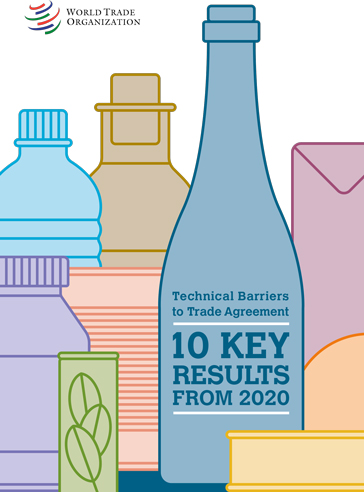TECHNICAL BARRIERS TO TRADE
More
The TBT Agreement aims to ensure that technical regulations, standards and conformity assessment procedures are non-discriminatory and do not create unnecessary obstacles to trade. At the same time, it recognises WTO members' right to implement measures to achieve legitimate policy objectives, such as the protection of human health and safety, or protection of the environment.
The booklet focuses on members' compliance with notification requirements under the TBT Agreement and the concerns raised in the TBT Committee, often in response to these notifications. Governments are required to “notify” other members, through the WTO Secretariat, of proposed measures that may have a significant effect on other members’ trade and that are not in accordance with relevant international standards.
Key results highlighted in the publication:
- Over 3,000 notifications are submitted annually.
- The number of notifications has increased by more than 11% each year.
- East Africa submitted 26% of notifications in 2020.
- Half of the WTO membership regularly submits notifications.
- A period of 56 days is allowed, on average, for members to comment on most notifications.
- Almost half of all notified regulations relate to protection of health.
- The WTO's main tool to disseminate TBT notifications, ePing, has more than 12,000 users.
- Trade concerns raised by WTO members have grown by 26% per year, on average.
- A record number of new trade concerns — 57 — were raised in 2020.
- About one-third of WTO members took part in discussions on trade concerns in 2020.
The publication can be downloaded here.
Share
Share
Problems viewing this page? If so, please contact [email protected] giving details of the operating system and web browser you are using.
